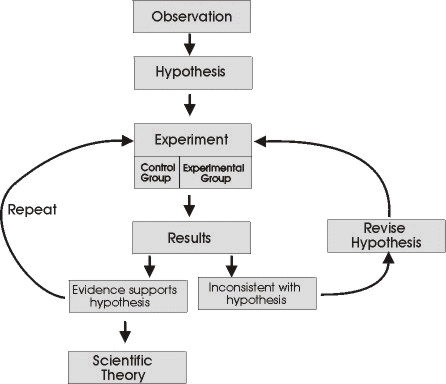| BIO326 : Individual : The Scientific Process | ||||
| BIO326 : Individual : The Scientific Process | ||||
| Scientists make progress by using the scientific method,
a process of checking conclusions against nature. After observing
something, a scientist tries to explain what has been seen.
The explanation is called an hypothesis. There is always at least one alternative hypothesis. A part of nature is tested in a "controlled experiment" to see if the explanation matches reality. A controlled experiment is one in which all treatments are identical except that some are exposed to the hypothetical cause and some are not. Any differences in the way the treatments behave is attributed to the presence and lack of the cause. If the results of the experiment are consistent with the hypothesis, there is evidence to support the hypothesis. If the two do not match, the scientist seeks an alternative explanation and redesigns the experiment. When enough evidence accumulates, the understanding of this natural phenomenon is considered a scientific theory. A scientific theory persists until additional evidence causes it to be revised. Nature's reality is always the final judge of a scientific theory. |
 |